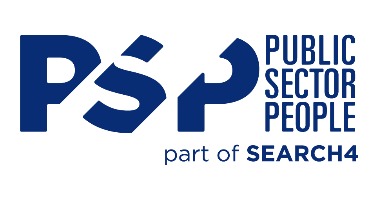Australia’s Most In Demand Jobs And What That Means For Those Working In The Public Sector

By Emily Harris
In the lead up to Australia’s Jobs and Skills Summit for 2022 (the Summit), the Federal government have revealed the country’s most in-demand jobs based on the government’s Skills Priority List, current data on job vacancies, current employer demand and the projected growth in employment over the next five years. These ‘hottest’ occupations included construction managers, civil engineers, ICT business and systems analysts and software and application programmers.
For employees, this information presents a unique opportunity for career development and job security – especially for those currently working within these industries. Furthermore, recent data from the Australian Bureau of Statistics revealed that by May 2022 the number of job vacancies within the public sector had increased by 9.4% since February, with a total of 41,000 vacancies. This growth within the public sector is expected to continue over the coming years – with sectors like ICT, Engineering and Construction being the biggest areas of growth. So, for those currently working within the public sector and considering a career move, or even trying to do some future career planning, this latest information from the government is a useful guide.
The goal of the Summit (held in Canberra on 1 -2 September) will bring together unions, employers, civil society and governments to address the shared economic challenges Australia is currently facing and develop strategies that can help build a bigger, better trained and more productive workforce while also helping to create opportunities for more Australians to get ahead and reach their aspirations.
It's believed that the nation’s immigration restrictions during COVID-19, combined with Australia’s 48-year low unemployment rate of 3.4% have been the key causes of the shortfall in Australia’s skilled workers – particularly in key industries like Construction, ICT, Engineering and Health Care which played such a prominent role for communities during the pandemic; either trying to boost the economy or support the vaccine roll out.
Which is why the Summit is happening; Australia’s prime minister Anthony Albanese said in a statement in July that the Summit will focus primarily on ways of keeping unemployment low, improving migration settings and ensuring women have equal opportunities and pay.
The themes and outcomes from this Summit, will apparently then be used to create an Employment White Paper the Government plan to release; a document aimed at helping to shape the future of Australia’s labour market. The official top 10 list of jobs the government predicts will need an influx of trained workers is below:
- Construction Managers
- Civil Engineering Professionals
- Early Childhood Teachers
- Registered Nurses
- ICT Business and System Analysts
- Software and Application Programmers
- Electricians
- Chefs
- Child Carers
- Aged and Disabled Carers
Interestingly, earlier this year LinkedIn released its own in-demand jobs list for 2022, to help both job seekers and employers see where the workforce is headed and where the opportunity lies – especially in terms of future job prospects.
According to Linkedin, their in-demand jobs list uncovers the fastest-growing job titles over the past five years and was created to be used as a resource, to help people identify where long-term opportunities lie and the skills these opportunities require for those either looking to make a career pivot, get back into the workforce or invest in skills that will prepare them for the future.
The job titles on this list were calculated by looking at the job titles experiencing the highest growth rates from January 2017 through to July 2021 on Linkedin. To be ranked, jobs needed to see consistent growth across our membership base, as well as have grown to a meaningful size by 2021.
To see a full list of Linkedin’s 15 Australian Jobs on the Rise in 2022, you can click here:
How do you Develop These Skills?
For those looking at these in demand roles and thinking they might need to brush up their skills, or even acquire some new ones, the good news is that there are plenty of opportunities to do so. E-learning has made developing and discovering skills and competencies more accessible. According to a recent Linkedin Learning report, there was a significant spike – 130% increase- in the amount of time employees globally, spent learning on the Linkedin Learning platform. That’s an additional 4.8M hours- equal to 454 years- of learning since the pandemic was declared in 2020. Linkedin learning offers over 16,000 online courses taught by real-world professionals, many of which focus on the in-demand skills listed in their 2020 global learning reports. But Linkedin isn’t the only option for online learning. During the pandemic Universities, tafe’s and training providers across Australia offered numerous short courses that could be completed online and were heavily discounted as part of the Federal Government’s coronavirus relief package.
In addition to online learning options, experts also recommend observing professionals and colleagues around you, especially when trying to hone a soft skill like creativity or emotional intelligence as these are steeped in a person’s behaviour. Things like completing tasks efficiently, interacting well with others or leading a team requires many soft skills, so being able to observe how your manager or coworkers do this and taking note of their actions, can be a great learning process for the individual. It’s also a great way to see soft skills in action, rather than reading about them from a textbook or course material.
Finally, experts recommend jobseekers or employees looking to develop their skills, embrace teamwork. As mentioned previously, teamwork is intrinsically linked to collaboration however, the majority of soft skills require individuals to be able to work well and communicate effectively with others. When you engage in teamwork, you open yourself up to learning opportunities from your coworkers while improving your own skills, so giving yourself the opportunity to engage in it as much as possible- team meetings, group presentations, multi-discipline projects- will only help you to practice and develop these skills.
Contact Us
Public Sector People also have a number of roles currently available within the sectors identified by the Federal Government as most in demand, particularly in Construction, Engineering and ICT. If you’re looking for a new challenge or interested to see what else is out there, you can look at our Jobs list here or alternately reach out to us at info@publicsectorpeople.com.au







Job Sectors
All content copyrighted | Privacy Policy | Cookie Policy | T&Cs | Powered with 💙 by Shazamme





